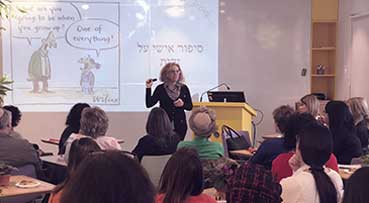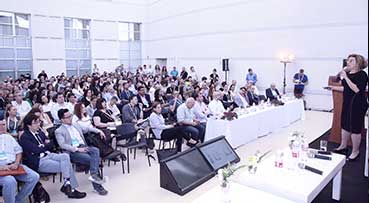In the evolving landscape of work, a new type of leader is emerging: a leader who operates not from a place of authority, but from a place of influence; a leader who understands that trust is the currency of the future and that our greatest resource is not just the minds of our employees, but their hearts as well. As we delve deeper into the era of informal management, we should find the courage to let go of the familiar reins of control and embrace the powerful tools of influence and empathy, shaping a future of work that is empowering, engaging, and profoundly human.
Authority has traditionally been derived from one’s position within the hierarchical framework. However, as the dynamics of organizations have evolved over time, with the introduction of matrix structures and dynamic team arrangements, the need for clearly defined decision-making processes has become increasingly crucial. To navigate the complexity of these new models, attempts have been made to replicate the hierarchical approach by establishing processes within networked teams that delineate decision-makers, advisors, and those who are solely informed.
Yet, despite these efforts to create clarity through the definition of authority within a shifting organizational landscape, it has become evident that this approach is no longer effective.
We find ourselves in an era of profound transformation, reshaping the very fabric of organizations. From the swift pace of technological advancements to the shifting aspirations of employees, and from the escalating intricacy of work to the diversification and dispersal of our workforce, these trends have compelled organizations to reassess their management frameworks and practices. In recent years, we have witnessed a shift from traditional hierarchical structures to interconnected networks that offer agility, independence, and prompt responsiveness. However, these new paradigms necessitate a departure from the reliance on formal authority and instead encourage us to harness the power of influence, collaboration, and autonomy—the very essence of informal management.
We are witnessing a profound shift in the sources of leadership power. No longer is power derived solely from one’s position within the hierarchy, but rather from the capacity to inspire, cultivate innovation, and motivate stakeholders into action, thereby exerting influence. As early as a decade ago, Google’s Oxygen project helped us understand that what sets effective managers apart from their less successful counterparts has little to do with position or hierarchical standing, but rather hinges on what was then referred to as “soft skills,” encompassing areas such as training, communication, and empathy. This groundbreaking research by Google has brought to light the indisputable truth that these so-called “soft skills” are not merely ancillary, but rather are fundamental and indispensable.
IBM’s 2018 Global C-Suite Study further corroborated the notion that in the digital age, effective leaders are those who transcend the limitations of formal authority, instead relying on their ability to inspire and influence. These leaders recognize the potential of collaboration and teamwork as invaluable assets in shaping strategic decision-making processes. They exhibit a willingness to embrace novel concepts, demonstrate a commitment to continuous learning, and possess the courage to question established norms. Creating an environment of psychological safety, they empower their teams to take calculated risks and learn from failures, fostering a culture of innovation where ideas are cherished and nurtured. These principles align with the tenets of informal management, which place a premium on leadership rooted in interpersonal skills rather than mere authority.
Even within the realm of informal management, processes do indeed exist; however, the distinguishing factor lies in the nature of these processes. The emphasis shifts from rigid structural frameworks to the individuals themselves, recognizing that the crucial aspect lies in the capacity to inspire and mobilize two distinct groups of people. Firstly, there is the team we lead informally, where our ability to influence and guide their actions is paramount. Secondly, there are the broader stakeholders who are involved in our work, and their support and engagement become vital components of our success.
Throughout the years, the focus of managerial training has primarily centered on equipping managers with the tools and techniques to effectively oversee their teams. However, in the realm of informal management, an additional skillset becomes indispensable—the ability to navigate organizational politics and conduct oneself adeptly. The secret to success lies in recognizing that one must not only consider the dynamics of the team being managed but also take into account the broader network of stakeholders operating within the organizational ecosystem.
This journey starts with acknowledging the formal managers of your team members, as they play a pivotal role in shaping the relationships and dynamics within the team. Their influence and interactions with your team members have a direct impact on the collaborative efforts. Additionally, the scope extends to encompass all individuals who have a stake in or are influenced by the work you undertake. This includes stakeholders who are directly involved, those who exert influence, those who provide or receive support, and even those who can offer assistance based on their specific position, knowledge, or influential capabilities.
If you manage informally, it is crucial that you undertake a comprehensive mapping of your networks, establishing not just an operational network to support your mission, but also a strategic network that can provide you with valuable information and influence. This approach to leadership acknowledges the significance of effectively navigating the intricacies of human relationships, transcending a sole reliance on hierarchical structures. By actively building and cultivating your network, you fortify your sources of power and ensure your ability to exert influence, even amidst organizational changes and transformations.
Central to this approach is the fundamental recognition that at the core of all our endeavors are individuals. Whether they belong to our team, hold influential positions, or impact our work in various ways, understanding these individuals becomes paramount. We must delve into their aspirations, concerns, motivations, and challenges—each unique to them. Armed with this understanding, we can harness these insights to foster engagement, motivation, and even inspiration for action. The essence lies in our ability to achieve these outcomes without relying solely on formal authority, and perhaps even surpassing what formal authority alone can elicit.
Organizational politics often carries a negative connotation, associated with manipulative practices. However, in this context, we aim to foster a different approach—one focused on cultivating positive organizational politics. By developing this capacity, we can generate outcomes that benefit not only ourselves but also our teams, stakeholders, and the overarching mission. It involves leveraging influence, building relationships, and navigating the organizational landscape in a constructive and ethical manner, with the ultimate goal of achieving shared success.
To realize this vision, we must foster a culture of collaboration that embraces the notion of inclusivity and ensures that everyone has a voice. This entails dedicating time and effort to establish transparency through effective communication, enabling a deep understanding of both the work at hand and the challenges faced by all stakeholders. Rather than relying on one-way communication that solely directs the workflow, our approach emphasizes open, two-way communication encompassing both formal and informal conversations, whether held individually or collectively. The goal is to create an environment where every individual feels heard and valued. It is important to note that this is not about unfettered democracy, but rather about nurturing a climate of open communication that encourages people to freely share their ideas and opinions.
Through the transparent sharing of information and active listening, we foster a collaborative culture that values the contributions of every individual, even if their viewpoints are not ultimately embraced. This inclusive approach acknowledges that diverse perspectives enrich the decision-making process and encourage innovative thinking. By creating an environment where ideas are openly discussed and considered, we cultivate a culture that respects and appreciates the input of all team members, even when consensus may not be reached. The aim is to harness the collective intelligence and create a sense of belonging, where everyone feels empowered to contribute their unique insights.
Indeed, the true power lies in our capacity not only to inspire people to take action but also to inspire them to align with our vision. And this influence is not attained by what we can take, but rather by what we can give. In the realm of informal management, our role transforms from mere managers to guides and mentors. We prioritize providing continuous feedback, supporting personal growth, and assisting our teams in realizing their full potential. These qualities, extensively validated by various studies, such as the Oxygen Project, are essential in fostering motivation and cultivating a deep commitment to the work at hand.
By becoming that manager for our teams, the one who will be remembered for the valuable lessons imparted, the opportunities enabled, the belief in their potential, and the positive impact on their overall experience, the distinction of formal or informal management becomes inconsequential. The focus shifts to the profound influence we have on their growth and development. Likewise, when it comes to stakeholders, the act of giving begins with attentive listening and acknowledging their perspectives. It then extends to generously sharing the successes and accomplishments of the initiative with all involved. This spirit of generosity and inclusivity strengthens relationships, fosters collaboration, and cultivates a shared sense of achievement.
As we embark on the path to the future of work, it becomes evident that our traditional tools, rooted in hierarchical structures and formal authority, are no longer adequate. Instead, we must adapt and navigate through new codes and principles. Managers who possess the ability to cultivate a culture defined by influence, trust, and engagement will thrive in attracting and retaining top talent. They will be entrusted with leading the most impactful missions, as they inspire and empower their teams to achieve remarkable results.
In the face of uncertainty and change, leaders who possess the ability to inspire and influence, rather than relying on traditional command and control approaches, will be the ones to successfully navigate through turbulent times. For those of us who have been accustomed to hierarchical organizations, embracing this shift is not without its challenges. It demands courage, adaptability, and a profound understanding of human behavior. However, managers who can effectively transition from formal to informal management will unlock the true potential of their teams, their organizations, and themselves.

![large-AX1A2125-2[1]](https://niritcohen.com/wp-content/uploads/elementor/thumbs/large-AX1A2125-21-pnzedcs72atx5aeurqytqdiihxixlq02re9mlz805s.jpg)






